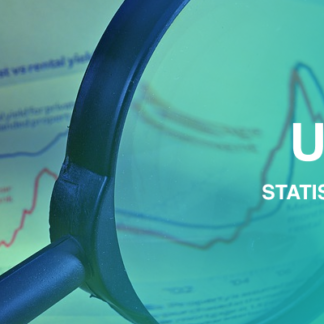Deskripsi
- Course Overview:
Statistical concepts are frequently used in economics, social sciences, and business. Statistics for Economic and Business is an introduction to these widely used concepts intended to give the student a better understanding in data presentation and analysis as well as the probabilistic nature of events and how statistics can be used to conduct inferences regarding population. After completing this course, students should feel much more comfortable reading about economics, social sciences, and business, as they will be able to critically evaluate such readings using the knowledge of statistics gained in this course.
- Daftar Topik:
Introduction, Descriptive Analysis I, Central Tendencies & Dispersion, Displaying and
Exploring Data, Index Numbers, Probability Concepts, Probability Distribution, Discrete Distributions, Continuous Distribution, Sampling Distribution, Inferential Statistics: Interval Estimation, Hypothesis Testing
- Daftar Sub Topik:
Introduction
What is Statistics
Statistics definitions and notation
type of dataDescriptive Analysis I:
Frequencies distribution
Classification of variablesCentral Tendencies & Dispersion
Arithmetic mean, geometric mean,
median, mode, weighted arithmetic mean
Standard Deviation and variance
Coefficient of Variation
Quartile, Decile, and PercentileDescriptive Analysis II: Displaying and
Exploring Data
Dot plots
Stem-and-Leaf Displays
Box Plots
Outliers
Scatter Diagram
Contingency Table Index Numbers
Simple Index, Aggregate Index
Weighted Indexes: Laspayres’ Price Index,
Paasche’s Price Index and Fisher’s Ideal Index
Nominal and real value
Changing the base year
Economic Application Probability Concepts
Probability Rules
Basic Concept of Probability, permutation and
combination
Joint Probability
Conditional Probability
Expected value
Tree Diagram Probability Distribution
Random Variables and Discrete Probability
Distributions
Mean and Variance of Probability Distribution
Binomial Probability Distribution Discrete Distributions
Poisson Probability Distribution Continuous Distribution
Uniform Distribution
Normal Probability Distribution
Normal Probability Distribution as
approximation of Binomial and Poisson
Probability Distribution Sampling Distribution
Introductions to Sampling Methods
Introductions to Sampling Distributions
Sampling Distributions of the sample Mean
Sampling Distributions of the sample
Proportion Introduction to inferential statistics (mean and
proportion):
i. Point estimation
ii. interval estimation Hypothesis Testing
Hypothesis-Testing Procedure
Hypothesis Testing of Arithmetic Mean
Hypothesis Testing of Proportion
Type I and type II errors
Final review
Graphs for data presentation





Ulasan
Belum ada ulasan.